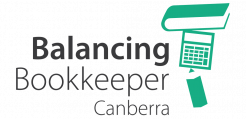When running a small business, staying on top of your cash flow is fundamental to keeping your books in control—in fact, it’s equally as important as your profit.
Cashflow is the amount of money that comes in and goes out of a company (hence the name!). It’s vital to maintain a healthy cash flow to not only determine your business’s performance but to also have the capacity to pay expenses, settle debts and provide a safeguard against potential financial challenges that may arise in the future.
To maintain a healthy cash flow, you need to be able to collect your revenue—after all, you should be getting paid for the service you deliver or the product you provide! If you’d like to learn how to manage your cash flow and get your invoices paid faster, continue reading to check out the five easy rules we live by!
Rule 1: keep your books accurate and up-to-date
First things first: your cash flow is only as good as your accounting and reporting—make sure everything is regularly updated! Whether you look at this daily, weekly, fortnightly, or monthly, you should be always checking your business’s financial position at a quick glance.
Rule 2: don’t be too lenient with your customers
While you want to keep your customers happy, it’s only fair to be covered for your time and effort to deliver a product or service. Always keep a close eye on your accounts receivable turnover—we highly recommend being fair, direct, and consistent but don’t be afraid to take formal action if you need to.
Remember: the quality of receivables goes down as they age so it’s worth acting sooner rather than later!
Rule 3: keep your accounting simple
There are many great accounting software programs out there but what we always tell our clients is to keep it simple! Programs like Xero are so user-friendly, which allows you to see your cash flow and track key business metrics—for example, aging accounts receivables, operating margins, inventory turnover, etc.
If you’re not confident with numbers, consider outsourcing to a professional (…we’re here to help and support you!).
Rule 4: separate business finance from personal finances
This might be a no-brainer, but you’d be surprised at how easy business finances can get mixed with personal finances.
If you want to understand your business cashflow and forecast, it’s important to keep them separate. By doing so, you’ll know exactly how much your business is generating and you’ll be in a good position to properly pay yourself, whilst using the excess to strengthen and grow your business.
Rule 5: build a cash reserve
Building a cash reserve places your business in a position of strength, providing you with the cushion you need to manage unexpected events. Not only is it the ultimate step in managing cash flow like a pro, but it also puts your business on the path to growth and success—even if it might mean you’ll need to pay yourself a bit less in the short term.
Have a question? Want to work together? We’ve got you—contact our friendly team here.

